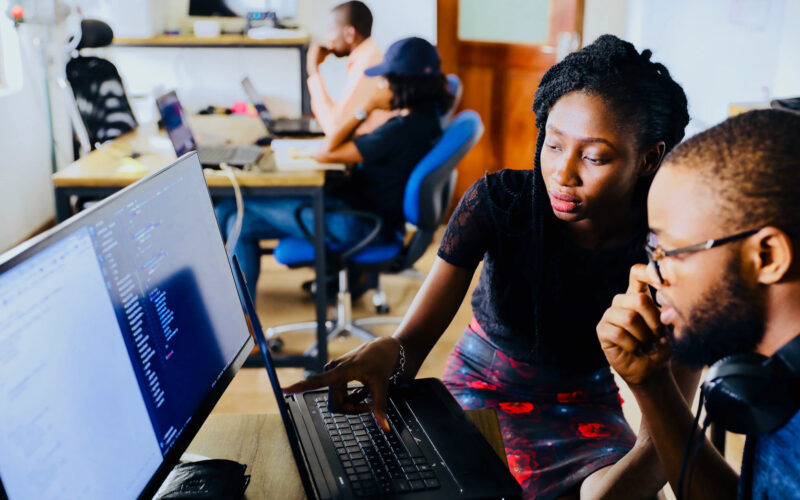
By Dr Evode Mukama
Adviser: Teacher Education, COL
“While AI is generating alarm regarding the future of jobs, humans will still be in high demand: for blue-collar jobs, jobs that need empathy and jobs where creativity and innovation are the key requirements.”
Professor Asha Kanwar, President and CEO of the Commonwealth of Learning (COL) delivered these remarks during a keynote address at the 2023 Global Smart Education Conference in Beijing, China. Her insights on the application of Generative Artificial Intelligence (GenAI) in education align perfectly with the theme of the 2023 World Teachers’ Day, “The teachers we need for the education we want: The global imperative to reverse the teacher shortage” (UNESCO). I have written before about how COL has been leveraging open and distance learning (ODL) methods and open educational resources (OER) to increase the number of qualified teachers in sub-Saharan Africa. The focus of this reflection is to understand why and how COL prioritises “the teachers we need” in the era of AI.
Understanding why
Some of the participants at a COL webinar on 27 September 2023 voiced apprehensions regarding GenAI’s impact on academic integrity. They reported that GenAI software could, for instance, assist students in crafting essays, forecast quiz outcomes and generate source code. They argued that AI has the potential to magnify existing inequalities, biases as well as the digital divide related to individuals, geographical regions, gender identities, ethnicities and more.
As a response to these concerns, several webinar interventions converged to recommend that teachers should revolutionise how they teach, interact with, and assess students, putting more emphasis on critical thinking. Similarly, Bill Gates acknowledges that “The risks of AI are real, but manageable.”
In fact, the statement by Tony Bush and David Middlewood in their book, Managing People in Education, is worth noting in this context: “People are the most important in any organisation. They provide the knowledge, skill and energy which are essential ingredients of success. Even in an era increasingly dominated by technology, what differentiates effective organisations are the quality and commitment of the people who work there.”
This is the reason why global organisations such as COL and UNESCO are actively addressing the disruptive effects of GenAI on teacher education by offering guidance for both policy and practical implementation.
COL assumes a leading role among Commonwealth nations, actively promoting the development of AI-driven policies and strategies in collaboration with ministries of education and teacher training institutions, enhancing teachers’ capabilities, and fostering the creation of ODL and open education resources (OER) course materials.
Understanding how
For building “the teachers we need” in the age of AI, just as an example, COL collaborated with the Virtual University of Pakistan to create a free Introduction to AI for IT and non-IT professionals course, catering to teachers, educators, and people from various fields. The course focuses on imparting knowledge about AI’s contemporary trends, technologies, and its practical applications across different sectors.
Moreover, COL hosts a series of webinars focused on GenAI, aimed at enhancing the abilities of teachers to effectively utilise GenAI in their teaching and learning practices. Their goal is to delve into the potential of GenAI to enhance the quality of education while promoting responsible usage within educational settings.
COL is convinced that developing countries should benefit from the transformative potential of AI in creating quality ODL and OER materials. For example, the Webinar ChatGPT for teaching and teacher training in developing country contexts discussed how GenAI could play a crucial role in promoting inclusivity within education and developing innovative ODL content, assessments, programmes and lesson plans.
Furthermore, various Commonwealth countries received COL assistance in training teachers in GenAI. For instance, through the collaboration with the Commonwealth Educational Media Centre for Asia (CEMCA), a unit of COL, the Indian state of Uttar Pradesh created an early-grade AI curriculum, prioritising teacher capacity building as its primary focus.
All these COL efforts to build teacher capacity in GenAI can be summarised in three literacies highlighted by Professor Kanwar in her keynote address mentioned above: human, data and technological.
Conclusion
As we explore the vital intersection of teacher education and GenAI, initiatives like COL’s AI courses, webinars and capacity building, offer pathways to harness AI’s potential while addressing issues of inclusivity and integrity. In this era of AI, it is not technology alone but the quality of the individuals using it that truly matters, underscoring the importance of proactive guidance from global organisations like COL. Embracing AI with thoughtful consideration allows us to shape a future where technology empowers teachers and enhances quality education for all.


